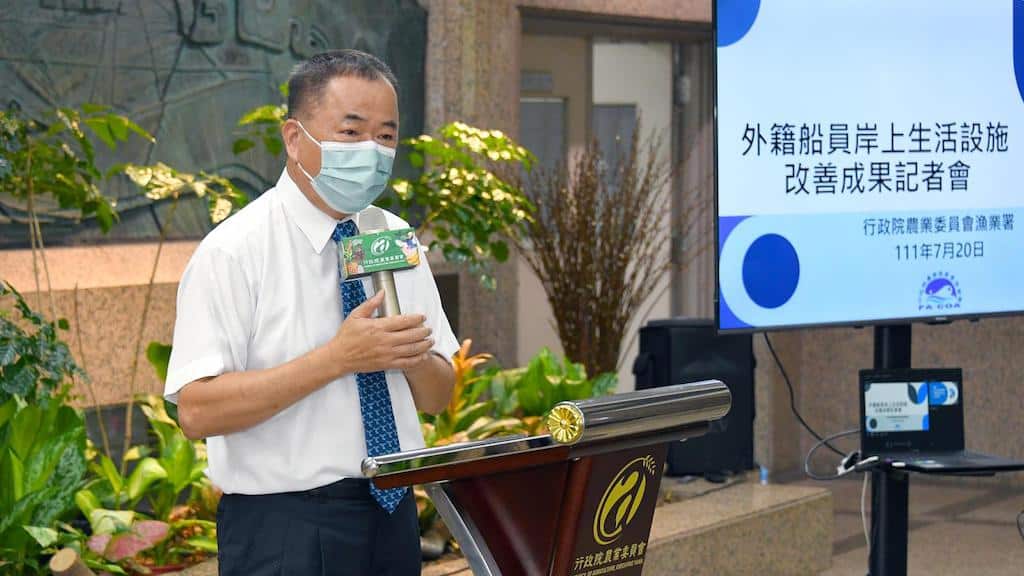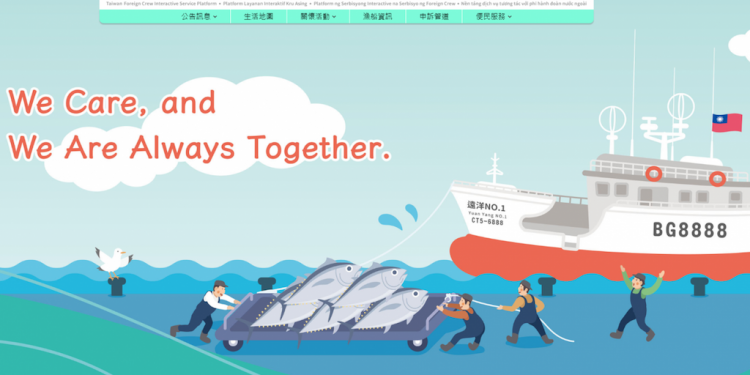Taiwan’s Executive Yuan has been promoting an action plan for fisheries and human rights as part of its key strategies, which includes practical measures to make life easier and more comfortable for migrant crews.
The Taiwan Fisheries Agency has been actively establishing facilities around the country, including providing washing and rest facilities that have been opened since 2020, and with three more such facilities set to open in the second half of this year.
The majority of foreign crews employed on Taiwanese fishing vessels come from Indonesia and most are of the Islamic faith. To respect their Muslim worship needs, 14 prayer rooms and associated facilities have been set up for foreign crew members to help meet their spiritual needs.

In the digital age – when everyone has a – migrant crew rely on their mobile phones to communicate with their families and the outside world.
The Fisheries Agency has launched the first-ever Foreign Crew Members Interactive Service Platform, which provides them with a map of each fishing port in five languages, including Chinese, English, Indonesian, Filipino and Vietnamese.
By accessing the service platform through their mobile phones, crew members can quickly be aware of the area around the fishing port. The service provides an overview of the fishing port’s surroundings, including shops, outlets, clinics, washrooms, and rest places, enabling foreign crews to integrate into local life as soon as possible. The platform also provides information on fishing vessels, information on rights and interests, and channels for grievance procedures.
According to a Fisheries Agency representative, the issue of the living environment for foreign crews has attracted much attention from the public, and in future, the Agency will strive to improve the onshore facilities in fishing ports, and actively promote and enhance the content of the service platform, so that foreign crew members can obtain relevant information on their living conditions.
The Agency aims also to continue to work with local authorities, local fishermen’s associations, and NGOs to protect the rights and interests of these foreign crew members.









